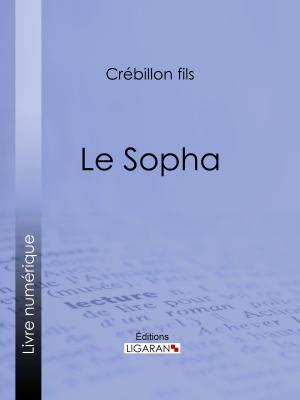| Author: | Jean-Baptiste Boyer d'Argens, Brett Tonaille | ISBN: | 1230000028239 |
| Publisher: | Tartopwol Books | Publication: | November 1, 2012 |
| Imprint: | Language: | English |
| Author: | Jean-Baptiste Boyer d'Argens, Brett Tonaille |
| ISBN: | 1230000028239 |
| Publisher: | Tartopwol Books |
| Publication: | November 1, 2012 |
| Imprint: | |
| Language: | English |
First published in 1748, this novel was one of the most notorious French erotic novels of the eighteenth century; and, despite its clandestine status, a bestseller. Among its admirers was the Marquis de Sade, who said (in his Juliette) that it was "alone to have achieved happy results from the combining of lust and impiety" and "finally gave us an idea of what an immoral book could be". Sade like many others attributed it to Jean-Baptiste Boyer d'Argens (1703-1771), author of a number of satirical and philosophical works; but D'Arles de Montigny has also been suggested as its author.
The novel is a curious combination of frank pornography and extended philosophical digressions, following the innocent Thérèse as she learns about both sexuality and free-thinking philosophy from a series of more or less savory mentors.
The novel's full title is often given as: "Thérèse Philosophe, ou mémoires pour servir à l'histoire de D. Dirrag et de Mademoiselle Éradice" ("Theresa, Philosopher, or memoirs to serve as the history of D. Dirrage and Mademoiselle Éradice"). This is a reference to the first sequence in the novel, which is based on a famous scandal, from 1731, involving Marie-Catherine Cadière (1709-?), a young woman with mystic tendencies, and the Jesuit father Jean-Baptiste Girard (1680-1733). But if Thérèse learns a great deal from watching the trusting young penitent and her lecherous confessor, she does not stop there. A free-thinking abbé and his not-quite-platonic female friend alternately frolic and discuss Religion and Nature as their wide-eyed house guest looks on - and participates, in her own solo fashion. Then in Paris, our heroine meets a (possibly) reformed courtesan who shares a series of naughty and often hilarious anecdotes with her new neighbor before Thérèse finally meets the Count who will give her a happy ending (pun intended).
This is the first full English translation of this Old Regime classic in forty years. It will equally interest serious scholars of eighteenth century France and far less serious readers of exuberant and playful erotica.
First published in 1748, this novel was one of the most notorious French erotic novels of the eighteenth century; and, despite its clandestine status, a bestseller. Among its admirers was the Marquis de Sade, who said (in his Juliette) that it was "alone to have achieved happy results from the combining of lust and impiety" and "finally gave us an idea of what an immoral book could be". Sade like many others attributed it to Jean-Baptiste Boyer d'Argens (1703-1771), author of a number of satirical and philosophical works; but D'Arles de Montigny has also been suggested as its author.
The novel is a curious combination of frank pornography and extended philosophical digressions, following the innocent Thérèse as she learns about both sexuality and free-thinking philosophy from a series of more or less savory mentors.
The novel's full title is often given as: "Thérèse Philosophe, ou mémoires pour servir à l'histoire de D. Dirrag et de Mademoiselle Éradice" ("Theresa, Philosopher, or memoirs to serve as the history of D. Dirrage and Mademoiselle Éradice"). This is a reference to the first sequence in the novel, which is based on a famous scandal, from 1731, involving Marie-Catherine Cadière (1709-?), a young woman with mystic tendencies, and the Jesuit father Jean-Baptiste Girard (1680-1733). But if Thérèse learns a great deal from watching the trusting young penitent and her lecherous confessor, she does not stop there. A free-thinking abbé and his not-quite-platonic female friend alternately frolic and discuss Religion and Nature as their wide-eyed house guest looks on - and participates, in her own solo fashion. Then in Paris, our heroine meets a (possibly) reformed courtesan who shares a series of naughty and often hilarious anecdotes with her new neighbor before Thérèse finally meets the Count who will give her a happy ending (pun intended).
This is the first full English translation of this Old Regime classic in forty years. It will equally interest serious scholars of eighteenth century France and far less serious readers of exuberant and playful erotica.















